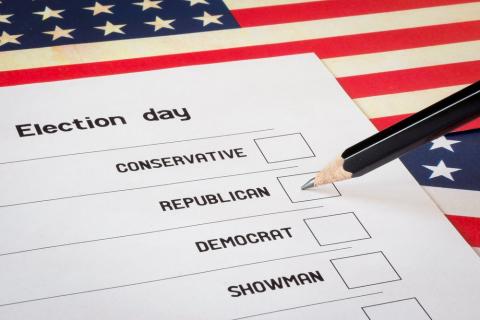For the politically informed, the punditry on CNN, Fox News and MSNBC has gone on ad-nauseam. Partisan dialog so wholly permeates our news media these days that it can be challenging to find good information about topics outside of the constant GOP vs. Democrat slugfest.
An inquisitive person might think to escape the noise by avoiding the world of Washington and searching for something tangible in city politics. Unfortunately, even small-town mayoral elections can’t necessarily escape the polarization rampant in American government.
Sioux Falls Mayoral Candidates Skirt the Issue of Partisanship
The Sioux Falls, South Dakota mayoral election set to take place in May has six competitive candidates. Not one of them is supposed to align with any federally endorsed political party, and yet all of them do.
Sioux Falls is a traditionally conservative community, and you can see that reflected in the makeup of the candidates. There are twice as many Republican-aligned candidates than Democratic.
Even though the candidates cannot receive funding from the federal parties, their decision to emphasize alignment with one or the other takes the focus off local issues and shifts the conversation toward national issues, at a time when townspeople should be allowed to put them aside.
Reflecting on Our Political Dialog
Conservative candidate Greg Jamison commented, “There’s no Republican or Democrat way to build a road or improve traffic lights.” However, that comment stands to question.
How one might go about funding such a project, who would do the work, and the type of solution implemented might all be influenced by the Mayor’s political affiliation. And Americans living in the Trump era are increasingly unwelcoming of ideas from across the aisle.
The supposed lack of partisan affiliation in local politics is designed to help us navigate around this kind of challenge. Without input from the major news media, the hope is that honest, insightful people with good ideas will be selected based on the solutions they propose. However, we are flirting with the elimination of that concept when everyone aligns with a nationwide party.
Stopping the Hasty Judgement of our Neighbors
Partisanship in politics is somewhat inevitable, but how that partisanship is expressed is what makes the difference. Without a reasonable cause, partisanship for the sake of "winning" at politics is detrimental to the political process. It disables our ability to institute real solutions and makes political wins the most important matter of business.
There has to be a reaction to the hyper-partisanship we've seen, and there will be. Already, many Americans realize that issues aren't always as simple as Democrat or Republican. There is a grey area, and it requires reaching across the aisle to reach a compromise we can all truly benefit from.
Asking the Right Questions
Does that mean that the people of Sioux Falls will be less likely to elect a Republican-aligned candidate in an area that is a historically red territory? Probably not. However, even if that happens, it is still important to recognize why that person gets elected.
Many voters have changed sides since the national elections in 2016. If local elections begin to take on the characteristics of larger, national elections, we could lose touch with the very people who represent our political future.
That would be a sad outcome. Not just for the people of Sioux Falls, South Dakota, but for all Americans, and particularly the nonpartisan voter. Our constitutional right to vote is sacred, and perhaps underappreciated, but every American citizen still has it. The only way for that vote to achieve its intended purpose is if the person who casts it really understands what they are doing, and aren’t just casting a vote with their political party’s best interest in mind. The interest of the American people — all of the American people — should be the most important consideration.
